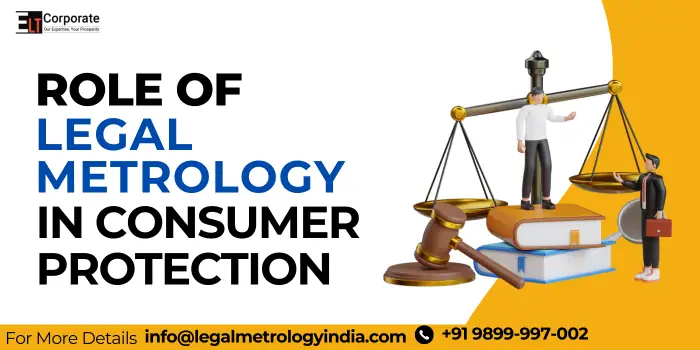Legal Metrology plays a vital role in consumer protection. This will ensure the consumer about the accuracy & reliability of measurements in commercial transactions. To present all the frauds and ensure fairness for the consumers it includes regulation and standardisation of weights, measures, and measuring instruments used in trade. They provide this by enforcing strict compliance with measurement standards. Legal Metrology helps to build the trust and confidence of consumers in the market.
Introduction Of Legal Metrology
Legal metrology indicates the application of the legal requirements necessary for measuring and measuring instruments. It ensures the accuracy and reliability of the product measurements used in trade, health, safety, and environmental protection. Legal metrology is mandatory for multiple products such as weighing scales, fuel dispensers, electricity meters, and medical devices. The objective is to protect the consumer from fraudulent practices and ensure they receive accurate measurements when purchasing goods and services.
Aspects Of Legal Metrology in Consumer Protection
Many aspects are related to the legal metrology in consumer protection. You have to understand all the aspects to enhance your legal metrology knowledge:-
Fair Trade Practices
Legal metrology ensures fair trade practices by verifying the accuracy of measuring instruments used in commerce. When a consumer buys any of the weight or volume goods they rely on the accuracy of weighing scales and measuring devices. Legal metrology authorities routinely inspect these items and make sure to prevent businesses from shortchanging consumers. This fosters trust between buyers and sellers and promotes fair competition in the market.
Accuracy in Weights and Measures
The primary function of legal metrology is to maintain the accuracy of the products and establish standards for weights and measures. Legal metrology plays a vital role in defining units of measurement and ensuring consistency across the different industries and regions. An accurate measurement is mandatory in many actors so legal metrology keeps it reliable for the consumer. So that consumers can consume the goods without facing any kind of troubles in the measurement of the products.
Consumer Protection Law
Legal metrology is necessary for the consumer protection laws. It is designed to safeguard the consumer’s unfair practices and ensure that they receive fair value for their money. Through these legal metrology rules a manufacturer or packer has to mention the accurate labelling of products, clear pricing information, and adherence to measurement standards. To keep the consumer safe from unfair trade practices legal metrology department has the right to regulations, conduct investigations, and impose penalties on businesses that violate consumer protection laws.
Quality Assurance
Legal metrology provides the quality assurance of the product that is consumed by the consumers. It ensures that measuring instruments used in various industries meet Indian standards. Legal metrology authorities have a right to conduct periodic inspections and calibration of measuring instruments. It is mandatory to ensure that the industries function correctly and provide accurate results. This helps maintain the integrity of products and services, protecting consumers from substandard or unsafe goods.
Economic Efficiency
For effective resource allocation and economic efficiency, accurate measurement is mandatory. Legal metrology helps to reduce the measurement-related issues and transaction costs. This will promote smooth and transparent commercial transactions. This will ensure cost errors and improve operational efficiency. This will bring a benefit for the consumers by providing them with reliable products and services at fair prices.
Health and Safety
Legal metrology plays a very crucial role in health and safety by ensuring the accuracy of measuring instruments used in medical and safety applications. Legal metrology authorities play a good practice in monitoring the measurement of glucose and blood pressure monitoring machines for the accurate readings to ensure the proper diagnosis and treatment. Legal metrology regulates and ensures that the devices meet Indian standards and satisfy the users.
Environmental Protection
Legal Metrology contributes to environmental protection also. They help us in regulating measurements related to pollution control and resource management. For monitoring and controlling environmental pollution accurate measurements of emissions and pollutants are essential.
Implementing Legal Metrology Standards
For the implementation of Legal metrology standards, you have to follow a few basic criteria steps. So, to be a part of Legal metrology authorities you have to go through the process of:
Calibration and Verification
Calibration and verification of measuring instruments is a very necessary component of the legal metrology standards. The calibration process ensures that the measuring instruments provide accurate and consistent results. They compare the instruments with the reference standards. Verification indicates that the authority periodically verifies the instruments by inspection and testing. It ensures that the instrument complies with the legal requirements. Legal metrology authorities perform these activities to maintain measurement accuracy and reliability.
Certification and Accreditation
Legal metrology authorities issue certification and accreditation to manufacturers and service providers who comply with the measurement standards. Certification ensures that measuring instruments meet specified accuracy and performance criteria. Accreditation involves the recognition of laboratories and organisations that perform calibration and verification services.
Training and Education
Training and education are important for the implementation of legal metrology standards. The training program is conducted for businesses, manufacturers, and service providers to raise awareness about measurement standards and compliance requirements. Education initiatives also target consumers, informing them about their rights and the importance of accurate measurement.
Consumer Awareness and Advocacy
Legal metrology authorities engage in consumer awareness and advocacy to protect consumers’ interests. This involves providing information about measurement standards, consumer rights, and complaint mechanisms. Authorities also encourage consumers to report measurement-related issues and fraudulent practices.
Conclusion – Role of Legal Metrology in Consumer Protection
Legal Metrology plays a vital role in protecting the consumer from unfair trade practices. An understanding of legal metrology consumer protection will help you to work with the legal metrology standards. This will ensure that your product is designed according to the indian standards of Legal Metrology. As technology advances and global trade expands, the importance of legal metrology in consumer protection will continue to grow. By raising awareness and advocating for accurate measurements, legal metrology authorities can foster a culture of fairness, transparency, and trust in commercial transactions.








